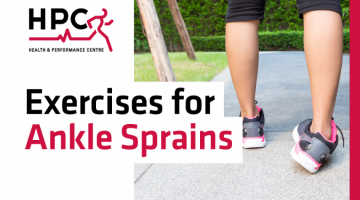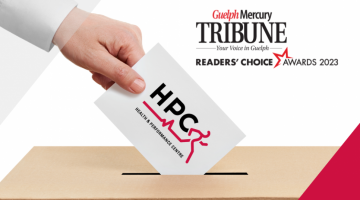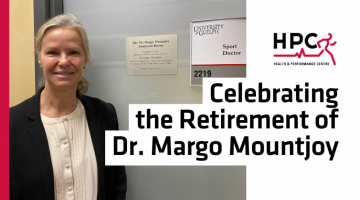Meniscus Tear in Knee: Causes, Symptoms, and Treatment Options in Guelph

Meniscus tears can cause significant knee pain and affect daily activities. Understanding the causes, symptoms, and treatment options for meniscus cartilage tears is crucial for effective management. At the Health and Performance Centre (HPC), a leading physical therapy clinic in Guelph, we specialize in providing comprehensive care for knee injuries. In this article, we will discuss meniscus tears, their symptoms, and various treatment options available.
Causes and Symptoms of Meniscus/Cartilage Tears:
The meniscus is a crucial piece of cartilage located between the thigh bone (femur) and shin bone (tibia). It acts as a cushion and shock absorber for the knee joint. Meniscus tears typically occur due to sudden twisting of the knee with the foot planted, as well as during squatting or kneeling activities.
If you suspect a meniscus tear, watch out for the following signs and symptoms:
- A popping sound at the time of injury
- Pain when twisting the knee or applying pressure to the joint
- Swelling within 24 hours after the injury
- Locking or instability of the knee, affecting normal walking
- Stiffness and limited range of motion, with difficulty bending or straightening the knee fully.
Meniscus/Cartilage Tear Treatments:
While surgery may be necessary in some cases, it is relatively rare for the general population. Most meniscus tears can heal naturally over time. If you are diagnosed with a meniscus tear, our experienced practitioners at HPC may recommend the following treatments:
Conservative Measures:
- Rest and avoid activities that exacerbate the pain.
- Ice the affected area to reduce swelling and inflammation.
- Elevate the leg to further reduce swelling.
- Compression with a knee brace or bandage can provide support.
- Non-steroidal anti-inflammatory drugs (NSAIDs) may be prescribed to manage pain and inflammation.
Rehabilitation Exercises:
-
Physiotherapy plays a crucial role in meniscus tear recovery. Our skilled physiotherapists in Guelph will guide you through exercises to improve range of motion and strengthen the knee stabilizing muscles, such as the quadriceps. These exercises aim to promote healing and restore optimal knee function.
Surgical Treatment:
In cases where the tear occurs in the inner two-thirds of the meniscus, surgery may be necessary as this region lacks sufficient blood flow for natural healing. Athletes or individuals seeking a quicker recovery time may also opt for surgery. Surgical treatment options include:
- Partial meniscectomy: The damaged portion of the meniscus is surgically removed.
- Meniscus repair: The torn meniscus is stitched back together. This procedure is usually performed arthroscopically through small incisions.
Post-Surgical Rehabilitation Process:
If you and your physician decide that surgery is the best option, planning your post-surgical rehabilitation process is crucial for a successful recovery. At HPC, we are committed to delivering excellent care during your rehabilitation journey. Contact us at 519-767-5011 to start planning your post-surgical rehabilitation process today.
Conclusion:
Meniscus cartilage tears can significantly impact knee function and cause discomfort. Early diagnosis, appropriate treatment, and rehabilitation are vital for effective recovery. At the Health and Performance Centre in Guelph, our experienced team of physiotherapists provides comprehensive care for meniscus tears, including conservative measures, rehabilitation exercises, and post-surgical rehabilitation support. Don't let knee pain hold you back. Contact us to receive exceptional care and get back on track to a healthy, active lifestyle.




